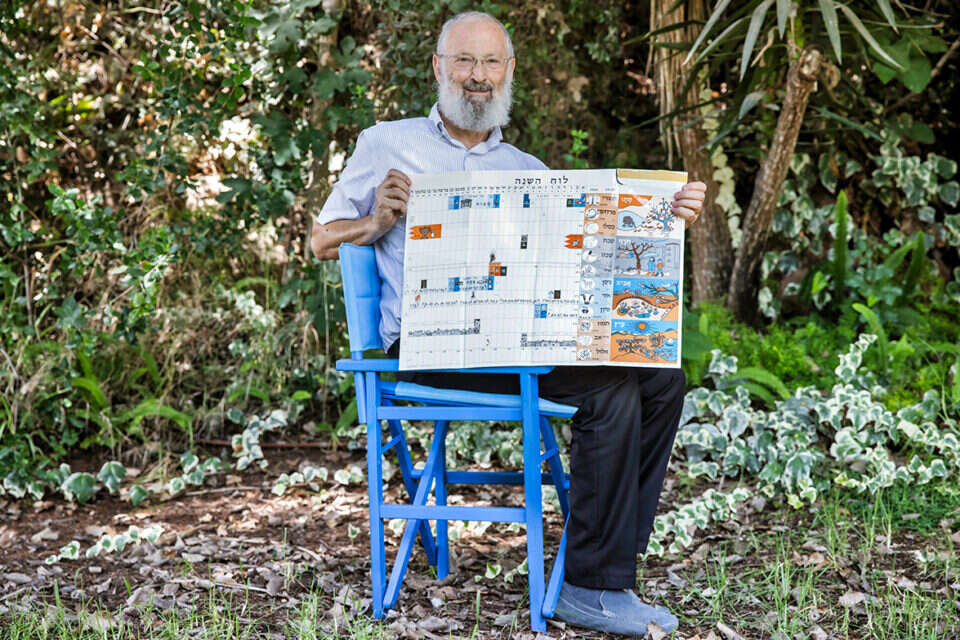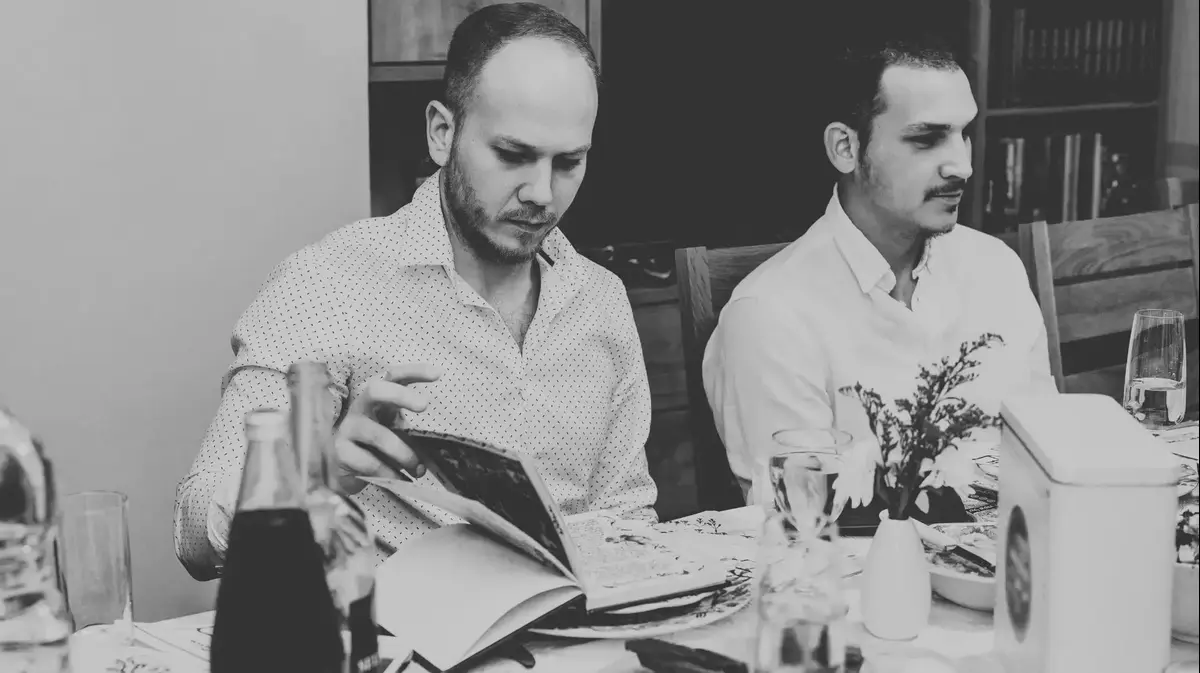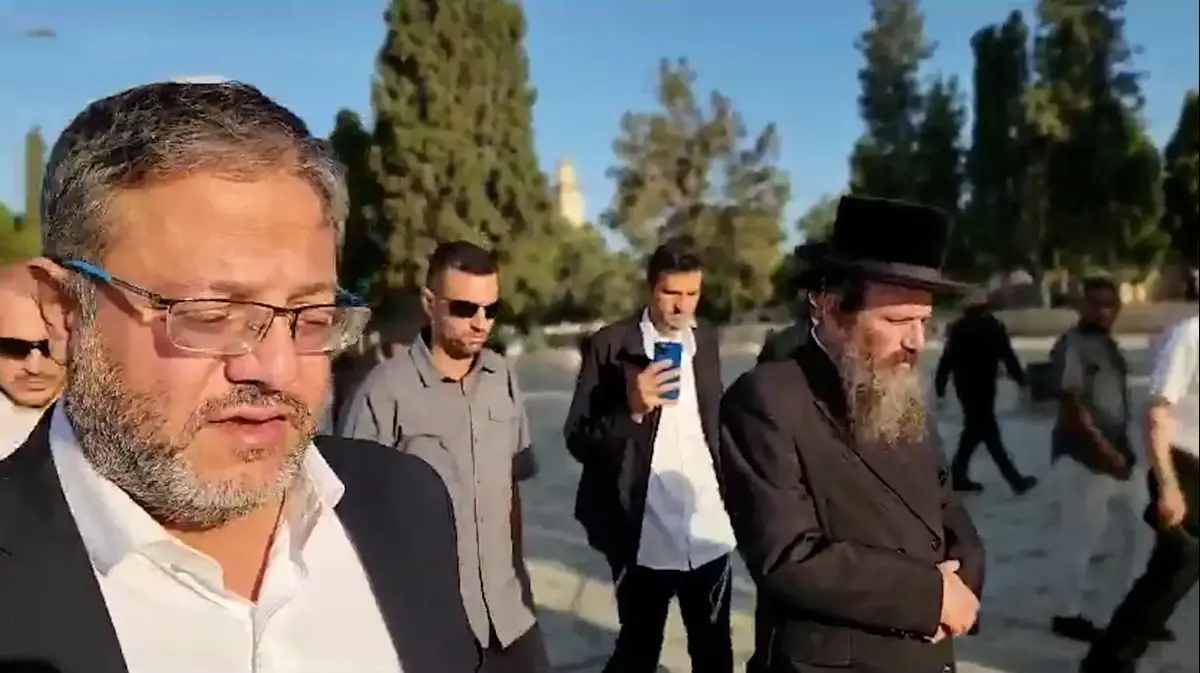Prof. Ali Merzbach, researcher of the Hebrew calendar.
President of the Jerusalem College.
Professor Emeritus in the Department of Mathematics at Bar-Ilan University.
Researcher in the field of probability theory.
From the authors of the book "The Permanent Hebrew Calendar, History and Structure".
Prof. Ali Merzbach, you research the Hebrew calendar, and usually ask your students if, when they are on a lonely island, they will know which day of the week Rosh Hashanah falls in 1906. Why is this so important?
"Maimonides, who lived about a year ago 900 years, writes in his famous book "Mishneh Torah" that "a man is commanded to know how to calculate the board." He even writes that babies of Beit Raban can learn the craft in a few days. "Our people, in our dates, holidays and customs. The Hebrew calendar unites the people. Imagine that tomorrow a person will decide that Passover or Yom Kippur is applied at a different time. Every nation needs a calendar. There is no nation without a calendar that helps us on personal and national dates."
Struggle for Shabbat.
Ibn Ezra reads in the stars, year 1,235,
How did you get into the board? This is a relatively versatile field in academia.
"It's true, the universities do not have the Faculty of Hebrew Calendar Studies. How did I get there? I was a university lecturer and I happened to be asked questions about the board - and I knew almost nothing beyond the basics. I decided it was time to delve deeper." Kiddush of the month ', and I saw that it appealed to me. There was a combination of math, spherical trigonometry, astronomy. In time, I just fell in love with the field, and I admit - I am in love to this day. "
Love is a big word. What made you fall in love? What is so special, for example, in our Hebrew calendar?
"There are not many such plates in the world, our plate is very natural, convenient, and one can be proud of its great accuracy. The Jewish plate is based both on the position of the earth relative to the sun, and on its position relative to the moon. Our civilian plate, by the way, is solar. The seasons go by the sun, but the months in the civil calendar are completely artificial, meaning they are not based on a natural-astronomical move.
" It has a cycle of 19 years which is very convenient, in relation to boards with longer cycles. There are also panels with cycles of more than 100,000 years, which can make it difficult to use. "
But even in 19-year cycles these difficulties can occur. The coming year, for example, is unique.
"The coming year, 5722, is a leap.
This is a year to which a whole month has been added, which we usually call Adar B.
Every few years add another month to the year to match the rotations of the moon around the earth, to the rotations of the earth around the sun.
"This adjustment requires an extra month, and then the year becomes fetal, fatter, as if pregnant. This occurrence occurs seven times every 19 years. Next year is also a shemita year. In a year like this, farmers are not supposed to cultivate their land and it raises many difficulties." .
Rules for conception and omission.
Sanhedrin Conference, 1883,
This is a rare event.
"Absolutely, a year of shemita and a leap year together is a rare event. So rare that in the Talmud it is written that it is forbidden to do so. "The year is longer, you have to work 13 months instead of 12. They used to be more careful, but today it is less common and we rarely see a year of bed and a leap year; it happens about once every 19 years."
The Gospel from Baghdad
As a result of the rare combination, are you expecting significant economic damage in our country?
"This is a good question, and the answer is who you are asking. Since our country is largely secular, it does not matter so much. But for religious people who want to be careful - it requires a lot of preparation, and of course there is no desire to get people to buy fruits and vegetables." "For Palestinian products, for example, because we want more blue and white."
You have probably been asked more than once about the possibility of separating a leap year from a bed year.
"Unfortunately, this is impossible because we have a permanent Hebrew calendar. The history of the Hebrew calendar is divided for me into three periods: first the Sanhedrin determined whether to pass the year, and then sages gave rules on the matter. The significant period was in the time of Rabbi Saadia Gaon, who lived about 1,100 years ago. He was a very important rabbi in Baghdad, and set the rules of the Hebrew calendar in an orderly and regular manner.
"So when I am asked if it is possible to make a slight shift, I answer that if things work well - do not touch. Today the Hebrew calendar is acceptable to secular, ultra-Orthodox, religious, Zionist, Ashkenazi, Sephardi Israelis - to everyone."
It must be said that Rabbi Saadia Gaon did not have an easy life regarding the Hebrew calendar.
"Against him stood another genius, Rabbi Aharon ben Meir. He decided that Rosh Hashanah should be postponed by two days, Saadia Gaon objected - and there was an argument that split the people of Israel into two parts: the Jews of Babylon followed Saadia Gaon, and the Jews of Israel and Egypt celebrated and celebrated according to Ben Meir - late Of two days - Rosh Hashana, Yom Kippur, Sukkot and Pesach.
"In the end, Aharon Ben Meir surrendered. He traveled from Eretz Israel to Baghdad and told Saadia Gaon, 'I accept your words.' The Hebrew, everywhere and everywhere. "
There is no nation without a board.
Agricultural calendar // Photo: From Wikipedia,
Unity, not uniformity
You referred to the secret of conception. What is the formula for determining a leap year?
"It consists of many formulas. At the tip of the fork, when the moon makes 235 revolutions around the earth, then the earth makes 19 revolutions around the sun. 235 months is 19 years, and then everything is offset. The idea is that the circumference of the moon will equal the circumference of the earth around the sun That's a big part of the secret of conception. "
Beyond the matter of conception and omission, the coming year has another interesting characteristic.
"Every year is characterized by three letters - and the coming year is called GCZ. It looks Chinese but when you understand - it's simple. C. means Tuesday of the week, that is - this year Rosh Hashana falls on Tuesday. And here too it is a relatively rare event, because usually the first day of Rosh Hashanah is celebrated on Monday, Thursday or Saturday.
"The second letter is K - 'as a series'. Basically, the months are 29 or 30 days long. But in the months of Merhashvan and Kislev you can play so that everything holds up better mathematically. If these two months last 29 days then the year is called missing. If both last. 30 days so the year is called Shlomo and if one month lasts 29 days and the other 30 then the year is called 'as a series', and this is the situation this year. The last letter, 7, indicates the first day of Pesach. In the evening, when a new day enters, as is well known.This is especially important for those who want to prepare for various cleanings. "
You mentioned in your answer that in Judaism - the new day comes in the evening. It is said, "The day goes after the night." It is different from other religions, and not really taken for granted.
"In the creation of the world it is written, 'Let there be evening and there will be morning one day.' First of all evening, then morning. In contrast, in Christian religions this is not the case. 900 years in Spain and the south of France. He was sharp and smart, and precisely because of his sharpness it was difficult to find work as a community rabbi. At one point he went to England, and when he arrived in London the local rabbi of the small Jewish community told him For Christians, start the Sabbath in the morning, not in the evening, and indeed it was.
"Ibn Ezra reassured the rabbi, and gave the members of the congregation a serious talk in the synagogue, and explained to them why the Shabbat must begin in the evening, at sunset. After the conversation they returned to the straight path, and even a small book came out - 'Shabbat Booklet'."
Shabbat, or rather this week's Torah portion, has a historical connection to the Hebrew calendar.
"Today, every Shabbat it is customary to read one particular parsha, and after 54 parshas one ends the Torah and begins anew. Once upon a time this was not the case, and in some places the Torah was divided into series. They would finish the Torah within three years, That in fact every community did as they saw fit, and this created a mess
.
The sages of Israel tried to unite things, and after many years came to a single custom, meaning that there is an order that is not self-evident.
The first to deal with this issue was Rabbeinu Tam.
I pray that in many other things we will come out of all the existing customs into unity.
Not uniformity, but unity. "
Constitutive order.
Saadia Gaon,
The logic of fate
You mentioned earlier that the Hebrew calendar has reached the point where it does the job well and faithfully. And yet, is there anyone who talks about its renewal?
"I say this quite directly - the Hebrew calendar as it is built today, if we do not touch it at all, will become problematic in ten thousand years. We see today a slow leakage of Passover towards summer. But the Torah says that Passover should be in spring - The month of spring and you have made Pesach ... '.
"This happens because the length of the year is not exactly uniform, and every few years there is a leakage of a day.
In fact, every few centuries there is a narrow leakage, and people do not notice it, but it is a real problem if our board does not match what is written in the Torah. "
What to do?
"In the meantime, I would not worry. I estimate that in ten thousand years' time the sages will have a serious challenge in how to make the change, and there are ways to do so. But the most complex challenge is that the changes will be accepted by all the people of Israel."
So in the meantime everyone is sitting hand in hand?
"There are some crazy people who are already dealing with the matter and trying to prevent it from happening. There are simple methods to stop the Passover leakage. In a seminar we held at Bar-Ilan, one of the experts even suggested different options for this. .
On another subject - I want to ask you, as a mathematician and researcher of probability theory, to what extent we correctly understand the data presented to us in corona matters. Some people say, for example, that patients are actually vaccinated.
"I am vaccinated a third time, and recommend a vaccine. I also heard on the radio a few days ago someone who says there are more corona patients among the vaccinated, so it is not worth getting vaccinated. That may be true, but the conclusion is not correct, so beware of statistics.
" Vaccinated because there are many more people who have been vaccinated, compared to those who have not been vaccinated. In fact, I claim that there are many more patients among the unvaccinated population, and that among the vaccinated the disease occurs less frequently. "
In conclusion, according to the Jewish faith, the fate of a person is determined on Rosh Hashanah. You have previously written a book called The Logic of Fate. Does fate really make sense?
"The word fate comes from the word lottery. According to the Jewish-religious idea - the result of the lottery is not blind, but symbolizes the will of God. There is another approach, more rational. For example, if a person survived a fatal car accident, he can tell himself a miracle happened. Second, the statistician will come in and say that at the same place of occurrence - one percent of those involved in the accident come out unscathed - and the exact same person was in that percentage.Who is right?
"I believe there is a hidden divine intervention. A constitutive event in the life of an infidel can make him begin to believe, regardless of whether it is a miracle or not, and this may be an increase in randomness. Statistical randomness can also have a kind of divine control; "This is to leave free choice in the hands of man."
For suggestions and comments: Ranp@israelhayom.co.il















